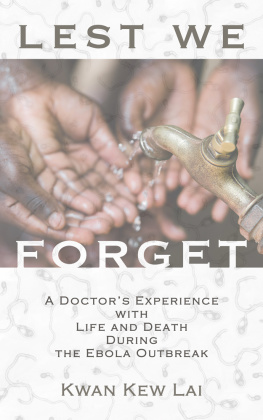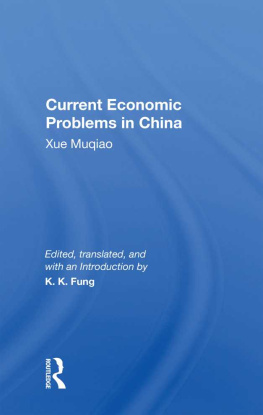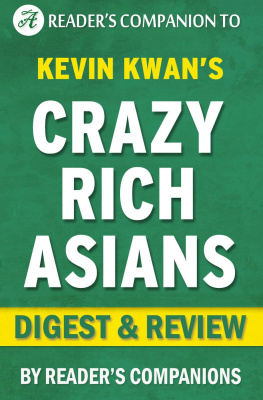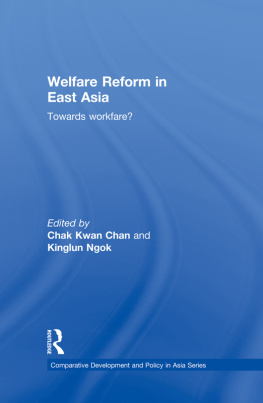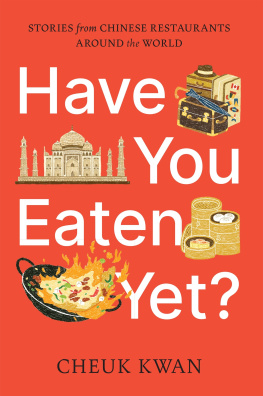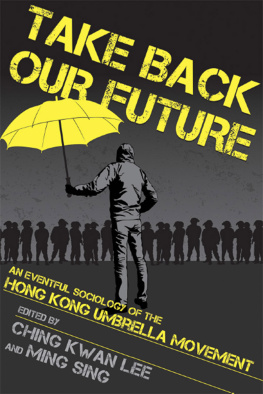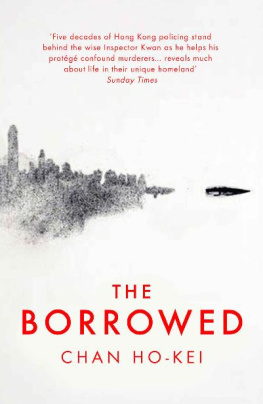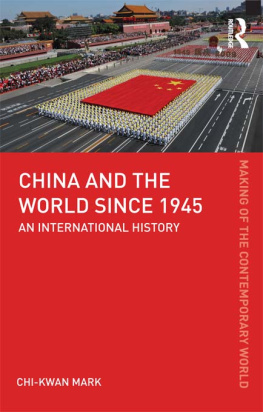Kwan Kew Lai - Lest We Forget
Here you can read online Kwan Kew Lai - Lest We Forget full text of the book (entire story) in english for free. Download pdf and epub, get meaning, cover and reviews about this ebook. year: 2018, genre: Non-fiction. Description of the work, (preface) as well as reviews are available. Best literature library LitArk.com created for fans of good reading and offers a wide selection of genres:
Romance novel
Science fiction
Adventure
Detective
Science
History
Home and family
Prose
Art
Politics
Computer
Non-fiction
Religion
Business
Children
Humor
Choose a favorite category and find really read worthwhile books. Enjoy immersion in the world of imagination, feel the emotions of the characters or learn something new for yourself, make an fascinating discovery.
- Book:Lest We Forget
- Author:
- Genre:
- Year:2018
- Rating:3 / 5
- Favourites:Add to favourites
- Your mark:
- 60
- 1
- 2
- 3
- 4
- 5
Lest We Forget: summary, description and annotation
We offer to read an annotation, description, summary or preface (depends on what the author of the book "Lest We Forget" wrote himself). If you haven't found the necessary information about the book — write in the comments, we will try to find it.
Lest We Forget — read online for free the complete book (whole text) full work
Below is the text of the book, divided by pages. System saving the place of the last page read, allows you to conveniently read the book "Lest We Forget" online for free, without having to search again every time where you left off. Put a bookmark, and you can go to the page where you finished reading at any time.
Font size:
Interval:
Bookmark:


Copyright 2018 by Kwan Kew Lai.
All rights reserved. Except for brief passages quoted in newspaper, magazine, radio, television, or online reviews, no part of this book may be reproduced in any form or by any means, electronic or mechanical, including photocopying or recording, or by information storage or retrieval system, without permission in writing from the publisher.
Published in the United States by Viva Editions, an imprint of Start Midnight, LLC, 101 Hudson Street, Thirty-Seventh Floor, Suite 3705, Jersey City, NJ 07302.
Printed in the United States.
Cover design: Allyson Fields
Cover photograph: iStock
Text design: Frank Wiedemann
First Edition.
10 9 8 7 6 5 4 3 2 1
Trade paper ISBN: 978-1-63228-062-6
E-book ISBN: 978-1-63228-063-3
Library of Congress Cataloging-in-Publication Data is available on file.
Names of some people depicted in this book have been changed to protect the privacy of the individuals.
For Scott, Tim, Cara, and Charles
For all who were and are still affected by the
Ebola virus and the Ebola fighters who put
their lives on the line.
FOREWORD

EBOLA CLAIMED 11,325 LIVES as it tore through West Africa between 2014 and 2016. But that number does not reveal the nightmares of the crisis. Only a relatively few number of people witnessed the days of the dying, and know what a horror it is. Infectious disease doctor Kwan Kew Lai is one. She recorded dozens of such scenes during several weeks she spent trying to save patients in Ebola wards in Liberia and Sierra Leone.
In addition to the gory details of blood, diarrhea and vomit, Kwan Kew recounts the emotional toll of Ebola. Adults and children infected with the disease often died in Ebola wards alone, with no loved ones beside them. They couldnt be hugged or stroked by doctors and nurses because of fear of infection. Furthermore, their terror was transferred to patients on neighboring cots who looked on in horror at their not uncertain fate. Kwan Kew recalls one young man in the Ebola ward, who sat bolt upright as a freshly dead corpse was unceremoniously sprayed with chlorine and bundled into a white body bag. She also recounts the mourning of children separated from their parents, and stoic or frantic mothers who watched their babies die.
During her second stint as an Ebola doctor, Kwan Kew also witnessed suffering from malnutrition, childbirth and tuberculosis. The health systems of the three countries hit hard by Ebola were among the weakest in the world, and Ebola sucked up whatever resources were available. Worse, people who had maladies other than Ebola risked being infected when they sought care at hospitals.
In sharing the personal stories of her patients final days, Kwan Kew honors the dead. So many Ebola victims were buried hastily in shallow graves in the midst of the crisis. These accounts at least show that someone heard their cries.
Kwan Kews tales also offer up questions that policy makers and global health experts might consider now that the crisis has subsided. For instance, months passed as international aid groups figured out how to send volunteers. And upon return to the United States, Kwan Kew and other doctors were subjected to shifting sets of security requirements. Some make sense, such as temperature monitoring, but many were absurd. After flying on crowded flights, Kwan Kew was once detained at an airport without explanation. Perhaps the US might consult epidemiologists now on the rules of re-entry, so that the country is better prepared to respond in the event of another pandemic.
Other ruminations have to do with the way patients were treated. For example, Kwan Kew repeatedly expresses her desire to give patients medications to ease their pain and anxietybut the clinics she worked in were not prepared for this intervention. She also writes about how Ebola doctors and nurses were treated differently based on their nationality. International humanitarians received the highest care that medicine could offer when they were suspected of having Ebola. Local staff were not. It is an uncomfortable truth that Kwan Kew does not shy away from discussing.
Ebola will strike again. Indeed, smaller outbreaks have since hit the Democratic Republic of Congo multiple times. Only by remembering the past can the world learn how to make these crises less devastating.
AMY MAXMEN
Maxmen is a journalist who covered the Ebola outbreak for National Geographic, Newsweek, Al Jazeera, the Economist and other outlets. She is currently a senior reporter at Nature, based in San Francisco.
PROLOGUE

WHEN I WAS YOUNG , my father boasted to his friends that I was the smart one and one day he was going to send me to Australia to attend university. But that did not jibe with my family situation. After his mandatory retirement as a government civil servant, my father worked long hours seven days a week running a food stall in a restaurant. He had twelve children to feed, clothe, and send to school, and what he earned was barely enough to hold the family together, let alone send me to a university, local or abroad. We siblings helped him after school and on weekends. There was no such thing as a day off, much less a vacation. My resourceful mother made food appear at the dinner table, even if it was sometimes the only meal that day.
I was born and brought up on the tiny island of Penang, off the western coast of the Malay Peninsula. Wealthy families from Penang would send their children to England, India, Australia, or America for higher education, but for me graduation from secondary school spelled the end of my schooling. I might have followed in the footsteps of siblings or friends and attended a nursing school or teachers college on government stipend, but I was not interested in either profession. The Malaysian government awarded scholarships to the University of Malaya, but gave preference to bumiputrasMalays or indigenous peopleand I was no bumiputra. (My paternal grandparents were immigrants from China, and my mother is an orphan.)
One day a young acquaintance of my sister who was home from an American college for summer vacation told her that some colleges offered full scholarships to foreign students. This glimmer of hope sent my best friend and me to the United States Information Service library in Penang, where we spent innumerable hours researching such institutions. I knew that I would have to get a professional education if I was ever to escape the cycle of poverty.
On March 17, 1970, after a long search and many applications, Wellesley College offered me a full scholarship. The pristine, pastoral New England campus and impeccable homes I got to know while enrolled at Wellesley were a sharp contrast to the squalor and dilapidation I left behind. I was thrilled to be in the United States but saddened by the enormous disparity between it and my childhood home.
I wanted to go to medical school, but in the 1970s admission into medical school was fiercely competitive and my foreign student adviser steered me toward public health or dentistry. Harvard School of Dental Medicine accepted me right after my junior year at Wellesley, but once there I realized that my first love was still medicine. So, after completing my dental education, I went on to get my medical degree. Eventually I specialized in infectious diseases.
Next pageFont size:
Interval:
Bookmark:
Similar books «Lest We Forget»
Look at similar books to Lest We Forget. We have selected literature similar in name and meaning in the hope of providing readers with more options to find new, interesting, not yet read works.
Discussion, reviews of the book Lest We Forget and just readers' own opinions. Leave your comments, write what you think about the work, its meaning or the main characters. Specify what exactly you liked and what you didn't like, and why you think so.

